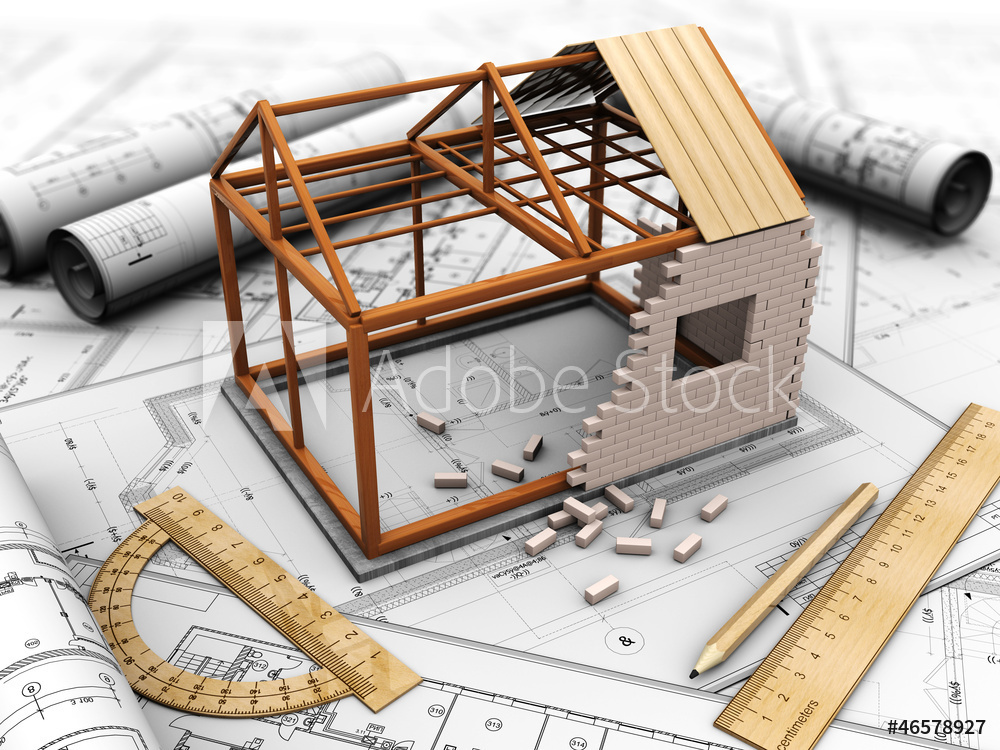Architect Portfolio Tips for Making an Impact in the Industry
Architect Portfolio Tips for Making an Impact in the Industry
Blog Article
Discover the Necessary Skills and Qualities Every Architect Have To Have
As an engineer, you know that success in your area surpasses simply technical abilities. It's regarding mixing creative thinking with usefulness, promoting collaboration, and managing tasks efficiently. Each quality plays an essential function in your ability to develop rooms that influence and function well. What are the details skills that can truly set you apart? Let's explore the crucial characteristics every Architect ought to cultivate to thrive in this ever-evolving career.
Creativity and Technology
Imagination and technology are at the heart of architecture, driving the style of spaces that motivate and operate flawlessly. You'll frequently explore new products, strategies, and technologies to enhance your layouts.
You'll likewise attract ideas from various sources-- nature, art, and also day-to-day life can spark fresh concepts. This ability to mix creativity with practicality enables you to resolve complex issues, guaranteeing your styles satisfy both useful and aesthetic requirements.
Solid Interaction Abilities
While designing amazing rooms needs creative thinking, solid interaction abilities are equally as essential for designers. You need to convey your ideas clearly to customers, service providers, and team members. Listening is simply as vital; comprehending your customer's vision helps you create styles that absolutely meet their requirements.
You'll commonly need to clarify complex principles in a manner that's easy to understand, whether you exist a proposal or going over materials. Effective interaction fosters cooperation, ensuring everyone is on the same page throughout the job.
Structure partnerships is crucial, too. When you develop depend on and connection, clients are more probable to share their issues and comments, bring about far better end results.
Last but not least, don't take too lightly the power of body movement and visual help. They can enhance your message and make your presentations more appealing. Strong interaction skills not only boost your designs yet likewise enhance your specialist partnerships in the architectural world.
Technical Efficiency in Style Software
As you navigate the ever-evolving world of style, mastering design software program becomes necessary for equating your imaginative concepts right into substantial plans. Acquainting on your own with programs like AutoCAD, Revit, and SketchUp will certainly not only enhance your design capacities but also streamline your operations. These tools allow you to produce comprehensive drawings, 3D designs, and even simulations that can aid you envision and provide your principles better.
Exceling in these software program applications likewise boosts your cooperation with designers and professionals, as everyone can function from the exact same electronic foundation. In addition, your capability to adjust to brand-new technologies will certainly maintain you competitive in the field. On a regular basis upgrading your abilities and checking out brand-new attributes can set you in addition to your peers, ensuring your designs are ingenious and exact. Eventually, technical proficiency in style software is a cornerstone of successful style, assisting you bring your visions to life.
Understanding of Engineering Concepts

Understanding design concepts also enables you to expect possible difficulties early in the design process. When you know exactly how different products behave under different conditions, you can make educated options that enhance your designs. Your designs need to not only be visually pleasing yet sustainable and likewise sensible.
In addition, a solid grasp of engineering principles permits you to innovate within restrictions. You can push innovative boundaries while still sticking to safety requirements. Eventually, this understanding enriches your architectural technique and establishes you apart in a competitive area.
Job Monitoring Abilities
Reliable project monitoring abilities are essential for architects, allowing you to look after all aspects of a task from perception to conclusion. You'll need to coordinate with different stakeholders, including engineers, professionals, and clients, ensuring everyone's on the very same web page. Establishing clear objectives, timelines, and spending plans is basic; it assists you maintain the project on the right track and within scope.
As an architect, you ought to additionally be experienced at danger management, identifying possible concerns before they escalate. Solid communication skills are vital, permitting you to articulate your vision and encourage your group. You'll gain from being arranged and detail-oriented, as this helps enhance processes and prevent expensive hold-ups.
Furthermore, versatility is crucial; jobs typically progress, and being adaptable permits you to react successfully to modifications. Eventually, your job monitoring abilities can look at here greatly influence the success of your architectural undertakings, like this ensuring you supply high quality results on schedule and within budget.
Attention to Information
While handling jobs is vital, your focus to information can make a substantial distinction in the quality of your job. Every line you draw, every material you choose, and every little specification you keep in mind contributes to the general success of a task. You require to be careful, making certain that your styles not only satisfy aesthetic criteria but likewise stick to constructing codes and guidelines.
Missing even a little detail can lead to pricey modifications or security concerns down the line. By growing a keen eye for detail, you improve your ability to spot prospective problems before they intensify. This caution not only conserves you time and resources however additionally builds your credibility as a trusted Architect. Keep in mind, it's usually the smallest details that elevate a job from great to remarkable. Embrace this ability, and allow it direct your layout process, ensuring that your vision is executed perfectly.
Flexibility and Problem-Solving Abilities
As a designer, you'll frequently deal with unforeseen modifications in design and job needs. Your capability to embrace these changes and locate ingenious solutions is vital for success. Remaining versatile in your strategy not just improves your analytic abilities but also maintains your jobs on track.
Embracing Modification in Design
Accepting modification in layout is essential for engineers, specifically when steering progressing client needs and arising technologies. You need to cultivate flexibility, as tasks typically shift direction based on new understandings or restrictions. Being open to change permits you to check out innovative methods and produce solutions that resonate with your clients.
When faced with challenges, your analytic abilities enter into play. You'll usually require to reassess principles and adjust plans on the fly, making certain that the last result lines up with the client's vision while satisfying safety and regulatory standards. By being adaptable and clever, you not just enhance your designs but likewise develop depend on with your customers, her latest blog verifying that you can browse the complexities of contemporary architecture effectively.
Ingenious Solutions to Challenges

Flexibility in Project Management
While navigating the intricacies of job monitoring, flexibility ends up being an important asset for engineers. You'll usually deal with unanticipated obstacles, from style adjustments to budget plan constraints, requiring fast reasoning and flexibility. Accepting modification enables you to pivot your methods and find innovative options, making certain project success.
Solid analytical skills are essential; they enable you to analyze circumstances, consider alternatives, and carry out reliable solutions on the fly. When collaborating with diverse teams, being open to comments and alternate ideas cultivates partnership and sparks imagination.
Frequently Asked Concerns
What Educational Background Is Required to Become a Designer?
To end up being an architect, you'll require at least a specialist level in design, usually a Bachelor's or Master's. Completing a teaching fellowship and acquiring licensure via exams is essential for your occupation development.
Exactly How Important Is Networking in the Design Area?
Networking's crucial in style. It aids you build connections, discover task possibilities, and gain insights from knowledgeable experts. By getting in touch with others, you enhance your job leads and stay updated on market patterns and developments.
What Are the Usual Career Paths for Architects?
Typical career paths for engineers include style functions in firms, job management, urban planning, and specialized locations like lasting style. Architect. You might also explore training or consulting, depending on your rate of interests and experiences
Just How Can Architects Stay Upgraded With Industry Trends?
To remain updated with industry patterns, you ought to on a regular basis attend seminars, sign up with expert associations, subscribe to appropriate magazines, and engage with on the internet discussion forums. Networking with peers likewise aids you get understandings right into emerging growths in architecture.
What Duty Does Sustainability Play in Modern Design?
Sustainability forms contemporary design by highlighting energy performance, resource preservation, and eco-friendly products. You'll produce spaces that lessen ecological influence, boost resident well-being, and respond to environment challenges, making your layouts much more impactful and relevant.
While developing exceptional spaces needs creative thinking, strong interaction abilities are simply as crucial for engineers. Solid communication abilities not just raise your designs however additionally enhance your expert connections in the architectural globe.
Proficiency in design software lays the foundation for a much deeper understanding of design principles, which is vital for architects.As a designer, you'll frequently face unforeseen changes in layout and job demands.Embracing adjustment in layout is necessary for architects, particularly when steering developing customer needs and arising technologies.
Report this page